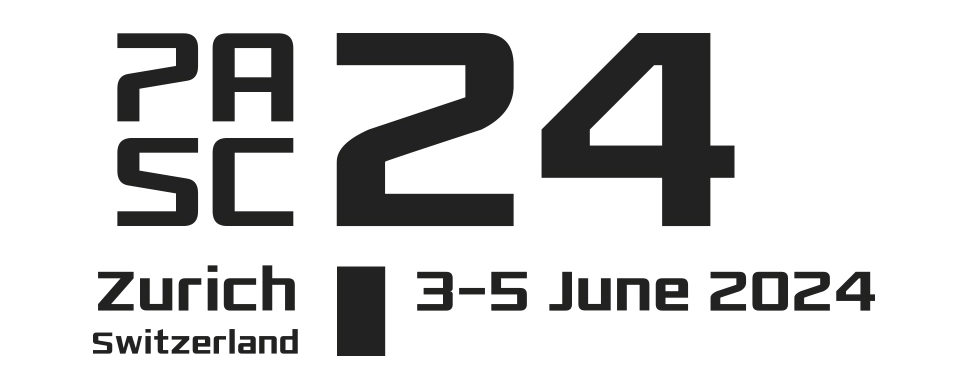PASC24 Plenary Program: Interdisciplinary Dialogue, Panel Discussion & Awarded Keynote
The PASC24 team is delighted to highlight today the interdisciplinary dialogue featuring Professor Nana Liu (Shanghai Jiao Tong University) and Professor Florina Ciorba (University of Basel), who will discuss first steps in bridging the gap between quantum and classical computing. During the panel discussion, we will then explore how we can move science forward together as a team. We are also pleased to host a talk by the authors of the PASC24 Best Paper as part of the conference program.
A Taster of the Next Era of Interdisciplinary Science
In line with one of the core principles of the PASC Conference – interdisciplinarity – we are delighted to announce this year’s interdisciplinary dialogue.
We look forward to hosting Professor Florina Ciorba from University of Basel in the role of interviewer and Professor Nana Liu from Shanghai Jiao Tong University in the role of interviewee for the dialogue entitled “Bridging Quantum and Classical Computing: Insights Into the Next Era of Interdisciplinary Science.”
In this dialogue, we will explore the fascinating world of quantum computing and its potential to enhance classical high performance computing as well as help with quantum problems. We will discuss quantum information, algorithms, parallelism, and simulators, showcasing how quantum computing can address interdisciplinary scientific challenges. Join us as we reflect on unique career paths and uncover the practical and transformative potential of combining quantum and classical computing to address grand challenges and solve important problems.
Science as a Team Sport
Conference co-chairs Katherine Evans (Oak Ridge National Laboratory) and Siddhartha Mishra (ETH Zurich) will engage scientists Ewa Deelman (University of Southern California),Karthik Kashinath (NVIDIA Inc.), Damian Rouson (Lawrence Berkeley National Laboratory), and Michela Taufer (University of Tennessee) in a discussion exploring how we can advance science together.
Science as a Team Sport: How Do We Win Together?
This year’s panel discussion will focus on the PASC24 theme: Synthesizing Applications through Learning and Computing. The panel will explore some of the specific challenges with opportunities when combining models, methods, and data from multiple domains, merging computing, learning, and simulation techniques, and explaining and bounding accuracy and uncertainties.
Awarded Keynote on Particle-In-Cell Simulations
Plenary sessions at PASC24 also include a keynote by the winners of the PASC24 Best Paperaward on data-driven approach to particle accelerator modelling. First author Ryan Sandberg (Lawrence Berkeley National Laboratory) will present this talk together with co-author Axel Huebl(Lawrence Berkeley National Laboratory).
Synthesizing Particle-In-Cell Simulations through Learning and GPU Computing for Hybrid Particle Accelerator Beamlines
Particle accelerator modeling is an important field of research and development, essential to investigating, designing and operating some of the most complex scientific devices ever built. Kinetic simulations of relativistic, charged particle beams and advanced plasma accelerator elements are often performed with high-fidelity particle-in-cell simulations, some of which fill the largest GPU supercomputers. Start-to-end modeling of a particle accelerator includes many elements and it is desirable to integrate and model advanced accelerator elements fast, in effective models. Traditionally, analytical and reduced-physics models fill this role. The vast data from high-fidelity simulations and power of GPU-accelerated computation open a new opportunity to complement traditional modeling without approximations: surrogate modeling through machine learning. In this paper, we implement, present and benchmark such a data-driven workflow, synthesising a conventional-surrogate simulation for hybrid particle accelerator beamlines.

